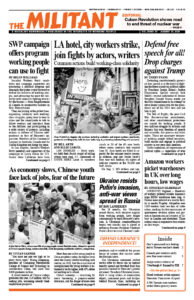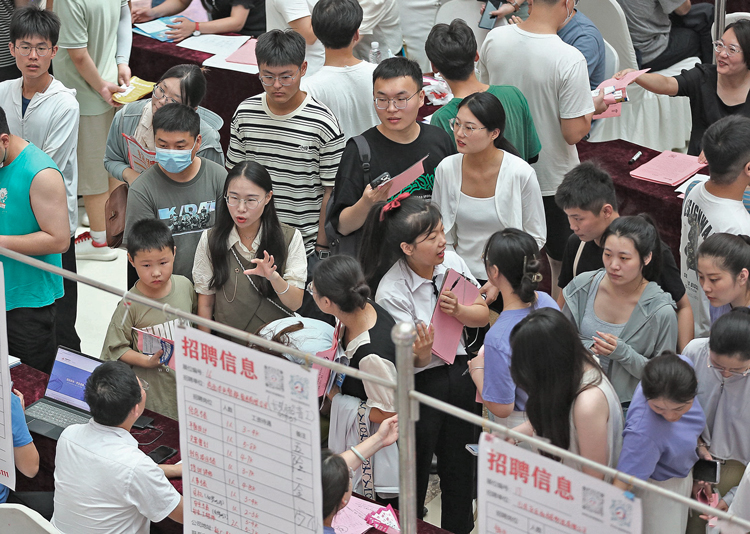“You must not aim too high or be picky about work,” Huang Zongming, president of Chongqing Metropolitan College of Science and Technology in southwestern China, told more than 9,000 graduates in June.
A record number of Chinese college graduates this year, 11.6 million, will be seeking jobs, worsening already bleak employment prospects.
More than one in five young people in China are jobless today, the highest level since the country started recording such statistics in 2018. And the actual level of unemployment for young workers is estimated to be far higher, with 45% either not working or in school.
China’s economy — hamstrung by heavy borrowing, a property-market downturn, and the danger of more state spending exacerbating the damaged economy — is contracting. In June factory prices fell at their fastest pace in more than seven years and exports from Chinese factories declined at their steepest annual pace in years. China is the top trading partner for over 120 countries, meaning that the slowdown there will have serious ramifications for the global capitalist economy.
Young people in China are increasingly being pushed aside from the futures they expected. Some students who graduated from college in June have taken to social media to protest.
Growing numbers are opting to “lie flat,” as young people call it, trying to get by without a job. Others, with families to support them, are dubbed “full-time sons and daughters” on social media after moving back home.
There are jobs available, but many young people say being forced to get a job locked down in dormitories working endless hours for companies like Foxconn is no future. Or working for tech companies that demand “996” work schedules — 9 a.m. to 9 p.m., six days a week.
Increasingly, they couple “lying flat” with alienation from the political propaganda of the Chinese rulers.
Nancy Chen, a 24-year-old college graduate, worked as a private tutor until 2021 when the government banned for-profit tutoring services. She said she hasn’t landed anything since because of “furious competition.” There were 30,000 applicants for three recent job vacancies at a municipal government in her province, she told CNN.
On the streets of Majuqiao, where migrant workers — young and old — scramble for construction work, the job situation is increasingly grim. One worker told the Washington Post he was accepting lower pay rates than he made five years ago.
In the city of Chengdu, Yang, an accounting graduate, has secured a job that pays about a third of what her father earns as a construction worker. “My father has paid so much money for my education, he thinks the investment is not worthwhile,” she said, adding that she could not imagine saving enough money to buy a home, marry or start a family.
Beijing’s response to all of this has been to blame the young people themselves. Their overly high expectations, China’s President Xi Jinping says, are the problem.
Young people need to stiffen their spines, he said, and stop thinking they are above doing manual work or moving to the countryside. Lecturing about the need to lower their aspirations and the virtues of hardship, Xi told the People’s Daily in May, “Choosing to eat bitterness is also choosing to reap rewards.” The article mentioned “eat bitterness” five times.
The Communist Youth League has urged young Chinese to “take off their suits, roll up their sleeves, and go to the farmland.”
The Communist Party press tells tales about young people making a decent living delivering meals, recycling garbage, setting up food stalls, fishing and farming.
But after years of being told that studying hard was the key to the future, government appeals now for young people to “get a job first, then find a career” are a hard pill to swallow.
Marriages in China are at a record low, despite the ruling Communist Party campaign urging people to get married and have babies. Last year, about 6.8 million couples registered for marriage, down by almost half from the 13.5 million couples who married in 2013.


